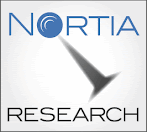Complete hardware and software platform enhances safety, reduces
cost, and increases robustness in cockpit and passenger entertainment
systems
Cambridge, UK, July 9, 2012: HiWave Technologies (LSE:HIW),
the provider of electronic devices that deliver innovative sound and
touch technologies to user interfaces on electronic display systems,
announces the launch of a haptics (touch feedback) platform for control
panels and touch displays in aerospace applications. The integrated
hardware/software platform enables systems designers to replace
conventional mechanical buttons with touch switches and brings haptic
feedback to panels and displays so that users perceive the positive
experience of mechanical movement, even though none is present.
For cockpit electronic systems, HiWave’s Bending Wave touch/haptics
provide greatly improved user feedback and safety than existing touch
controls. The company’s force-related haptics enable touch detection and
tactile sensation from non-moving touch switch arrays, even with gloved
hands. As no mechanical movement is present there is no physical wear,
reducing maintenance costs. HOTAS (Hands On Stick And Throttle)
functions can be contextually mapped onto sensor arrays, and MHDDs
(Multi Function Head Down Displays) can have full multi-level touch and
gesture recognition with 3D haptic response. Passenger aircraft
in-flight entertainment systems benefit similarly from this patented
haptic technology.
The evaluation platform incorporates HiWave’s HIHXC14C02-8 or
HIHXC09C005-8 haptic actuators, which attach to the touch interface
panel or switch array, and a HiWave haptic controller integrated circuit
which resolves touch input and delivers the haptic signals to the
actuators.
HiWave’s Bending Wave actuators create waveforms across the touch
panel or switch to create any of a range of switch sensations such as
the feel of a mechanical switch or button. Additionally, if desired,
audio cues can be simultaneously overlaid. A significant benefit of
HiWave’s combined touch and Bending Wave Haptics is that the panel can
be robustly constructed with no moving or separate parts that would be
the case with traditional buttons and switches. No physical movement is
necessary as bending waves create the tactile sensation locally in the
touch panel. This reduces cost, increases ruggedness and product
lifetime. As with HiWave’s other haptic platforms, this is achieved with
a high level of mechanical efficiency by HiWave’s patented inertial
exciters, resulting in crisp tactile sensation with low power
consumption.
HiWave’s algorithms processed in its haptic control chip enable
feedback responses to be defined by the designer and implemented by
HiWave to replicate a wide range of button or key-press press
sensations, or textures to convey information to the user. HiWave’s
bending wave technology is the only solution that delivers true wideband
haptics for the richest tactile sensation, as well up to 15kHz for
audio playback. A range of audio feedbacks – from simple pings and
clicks to mp3 files containing spoken instructions and music - can also
be delivered without additional speakers by using the touch panel as the
sound emitter.
James Lewis, CEO of HiWave said:
“Aerospace and defence is an important market, recognising and
adopting the very best solutions for user interface to enhance
operational effectiveness and flight safety. But the in-flight
entertainment systems in passenger jets also need easy to use robust
touch and haptic user interface to give passengers the easiest access to
information and entertainment, and save cost caused by system failures.
Our haptics and touch solutions bring clear advantages in this
environment.”
HiWave continues to patent its haptics and touch technology
breakthroughs, and will demonstrate its solutions to major aerospace and
defence companies at the Farnborough International Airshow, 9-15 July.
http://www.hi-wave.com/news/tactile_feedback_for_aerospace_electronic_systems.php
Wednesday, July 11, 2012
Subscribe to:
Post Comments (Atom)





No comments:
Post a Comment